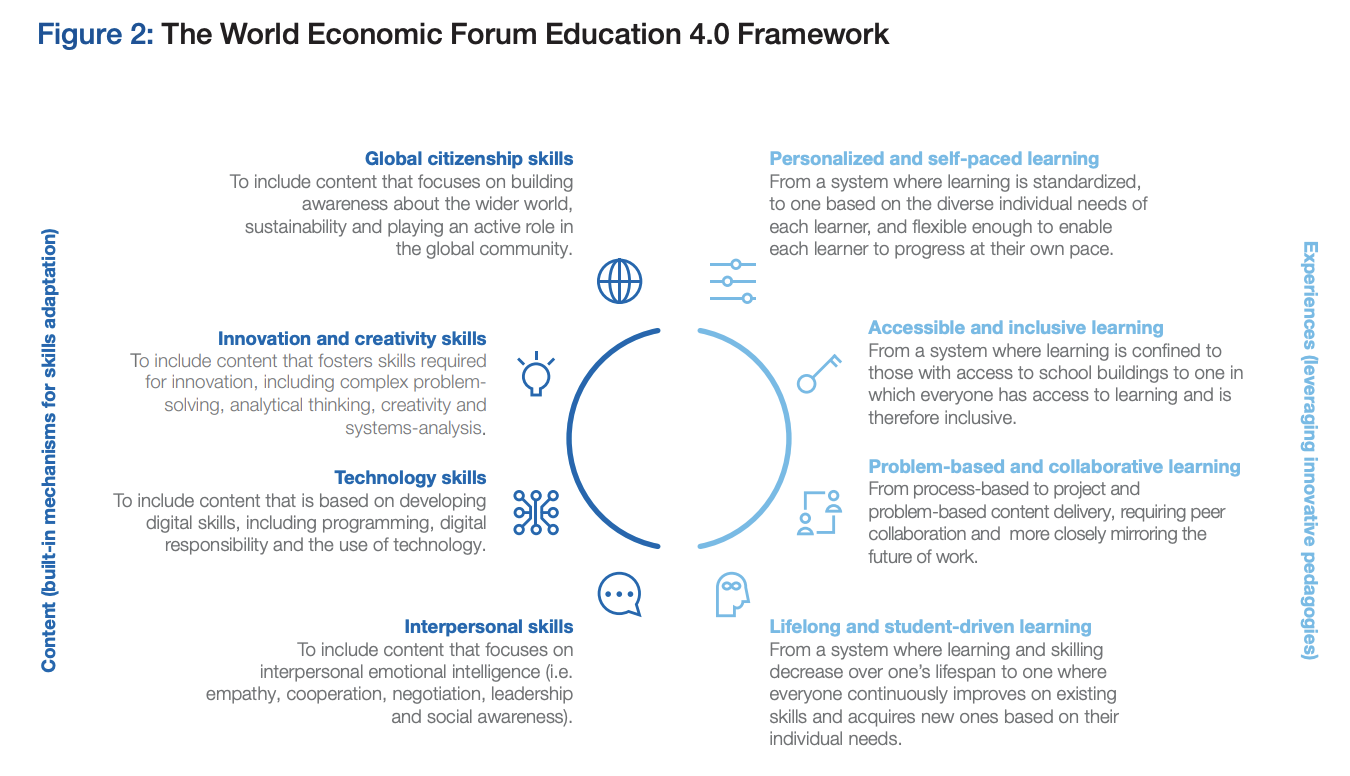Leo Thompson is dedicated to empowering people to learn and grow through applied education research and innovation. A former teacher and school head, he is now an international education consultant and an influential writer and speaker who lives in Vienna, Austria. For Leo, being successful must mean bringing sustainable value and well-being to the world in whatever you do.
Time to brace ourselves! We are about to reach an event horizon around learning – not just in our global schools and universities but also in our professions and careers.
Rather like a black hole, a huge societal vacuum will draw us to make significant changes in the way we learn out of necessity and expedience. It is clear that powerful macro forces relating to credible research about better ways for us to do things for efficiency, productivity and performance, the urgency of competition, and relentless technological innovation make a shift in how we learn vital to thrive. And you will probably be able to think of more forces and reasons.
But the solution is not just about AI and machine learning, emerging research shows that cognitive science has highlighted ways to become much more efficient learners as humans – as opposed to the chip-implanted cyborgs we see in the movies or perhaps a Muskian fantasy!
So how can the modern learner flourish to meet these large forces head-on?
This opinion piece is not about AI – it is about learning to learn and taking ownership of learning as a survival skill and precursor for success. Fortunately, very practical research findings have arrived for us to do this, and the answer is not simply a technology boost but giving our own iOS albeit neurological wiring a boost.
This is because most of us are completely underutilising our own brain’s amazing learning capacity, yet we do not realise it.
To start with a narrative that many people can relate to. Despite the efforts of many to budge it, education and learning expectations still centre upon substantial memorisation and information retrieval associated with lower-order thinking. i.e. ‘Remember this, remember that’. This is effectively represented in the age-old model well-known in educational circles called Bloom’s Taxonomy (Bloom, 1956). In fact, this approach is so hard to budge it has been said that it is easier to land somebody on the moon than to reform the education system!
As somebody who works in the education industry, I would say landing on Mars would be more accurate even though education has millions of dedicated professionals trying to do their best for kids. Overhauling a colossal, complex system such as education can take years as it is built on countless co-dependent interactions. Education inches forward through marginal gains more than seismic shifts.
And sometimes it takes a pandemic to give it a push and force a rethink!

In the revised Bloom model (creativity was added to the top) conversations are much more about leveraging the upper regions of the model such as creativity, evaluation, analysis, and for this we need to really take ownership of our own learning. The desired elements are associated with critical thinking prerequisites for successfully negotiating the puzzle of life and work. i.e. Should I do this? Is this better than that? How can I apply this? How can this be improved?
The systemic issue is that very few teachers have access to cognitive research in a way that they can readily translate it to practically support individual learners and help them optimise their learning system with confidence. Whilst mindful of more progressive exceptions, the entire education system does not equip children with the understanding and knowledge of how independent learning is best managed. This would require the thorough nurturing and training of metacognition, self-regulation, critical thinking, efficient memory encoding and a variety of other interconnected enablers such as developing a growth mindset.
This is not the fault of the embattled teachers or educational leaders.
The issue lies in teacher training where typically teachers are focusing on aspects like curriculum, assessment and effective lesson delivery rather than fostering independent, self-regulating, metacognitive learners who are flexible and able to adapt with their learning environment. Other than a bit of instilled pedagogical theory – think Vygotsky, Bruner, Piaget, Dewey, Skinner, and more recently Dweck on growth mindset in the model below – teaching is learned experientially in the classroom with the feedback of observers and mentors. It takes years to develop as it is a craft.

There is still very little focus on helping students become independent learners and most schools are far from being able to teach them exactly how to do so with a well-formed, robust, research-substantiated practical system. Thus, most students arrive at university ill-prepared for the level of autonomy and independence required. In turn, when they arrive at companies, they often lack the independent skills that companies need and are required to learn them on the job.
This is a significant amount of lost time regardless of the employee’s excellent potential.
If we face the hard truth, the implication of this situation is that most people will consequently perform beneath their own potential and collectively companies will not even be close to being as productive as they could be. Of course, smart, responsible companies truly cultivate the learning and professional growth of their employees but how many enhance their actual capacity to learn fast and learn deep?
Imagine if all employees could read a large research paper just once, process, absorb, understand and critique its main points and interpret its implications, be able to rapidly make lateral connections and instantly recall it with little knowledge decay because of the way it was first processed.
An effective learning-to-learn system makes this possible and this can be trained. Intelligence can be taught.
This readiness deficit becomes blatantly obvious when students reach university or enter companies without independent learning skills because these have not been cultivated in an education system which is still largely obsessed with spoon-fed, rote learning and the application of formulaic skills which could be redundant within years. You may have heard the claim that many of today’s students will enter roles that do not even exist yet whilst we prepare them for a world that existed thirty years ago.
This is not to say that skills and factual knowledge do not have their place, but that information retrieval will not be the most important aspect for students when they enter the marketplace unless they are going to work for a company that designs pub quizzes!
We all know that real-life modern learning requirements are typically way more practical than content taught in schools and colleges. For instance, in companies, learning ranges from need-to-know areas like onboarding, technical training, product training, leadership and management development, project management training, compliance and regulatory training, communications and presentation skills, and the list goes on. Learning efficiency and the sort of on-the-job training is incredibly important and employees need to be able to absorb information and ideally make it stick first time round so they can apply it.
Time has seemingly become one of our most precious commodities when we thought it was gold!
If you are running a company and in the C-suite, you will have a pretty good idea of what the ideal employee would be. Still, it may be interesting to know that the World Economic Forum have stated about what education needs to focus on to turn out great future employees. Is this a match for your own prediction?

The implications of the answer to this question are currently being discussed in schools, universities and naturally in industry aka the world of work. It is clear that innovation in this sense is not just technology and how to leverage it but also how we think and process significant amounts of information to work towards a specific vision or set of goals. This quandary is something that schools, universities and companies share in common.
So what is the way forward?
Just like the World Economic Forum, the OECD and other influential global players have stated that independent learning-to-learn skills need to be progressed massively in schools in a way that can place a foundation that is relevant to the future workforce.
So what can we do?
We can all engage in professional development around learning to learn. This may seem like a cheesy ‘buzz-phrase’ but actually, the skills within this umbrella term are very significant. We should turn to companies who can practically distil research into learning powers that we can apply every day. Dr Justin Sung, head of Learning at iCanstudy – a company that is revolutionising ‘learning to learn’ and has a large following from students to professionals – on YouTube and other social media – states:
“It is time to cut to the chase and simply upskill all learners K-100 based on the latest cognitive science – not just because it’s more productive and saves us huge amounts of time but because it’s actually more enjoyable as a person to be in the driver’s seat of your own learning.”
Learning K-100: time to thrive!

